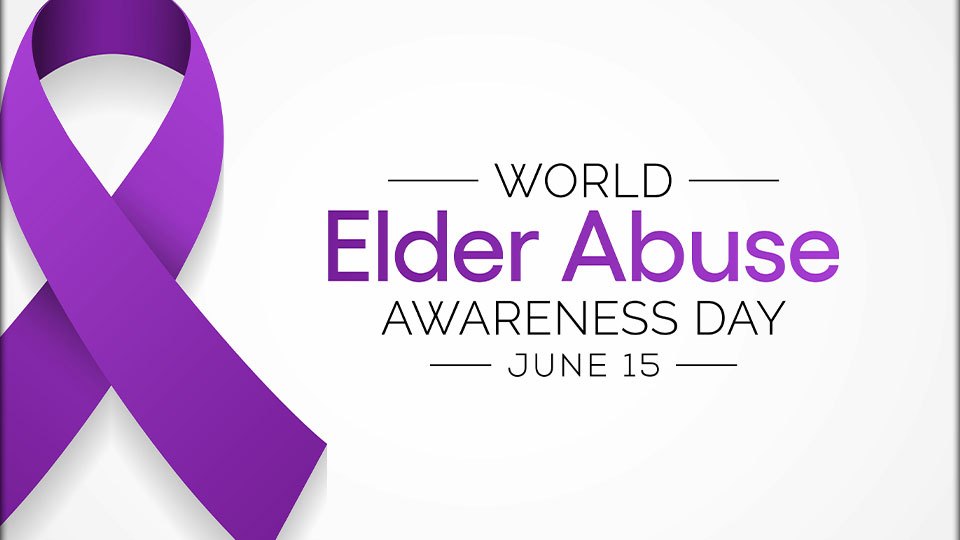AARP Hearing Center

June is Elder Abuse Awareness Month and AARP North Carolina is working with other advocates for the aging to help prevent exploitation, abuse and neglect of older adults in the state.
Elder abuse refers to intentional or negligent acts by a caregiver or trusted individual that causes harm to an older person. Elder abuse takes many forms, including:
• Neglect or Isolation
• Physical abuse
• Sexual abuse
• Financial abuse and exploitation
• Emotional or psychological abuse (including verbal abuse and threats)
According to the National Center on Elder Abuse, although the abuse is widespread, this problem remains almost invisible.
A fact sheet from the Center explains, Like other forms of interpersonal violence, elder abuse usually occurs behind closed doors. Many people who experience elder abuse are reluctant to report abuse because they may:
• Feel ashamed and embarrassed, particularly if a family member is the perpetrator
• Be afraid that the perpetrator will get in trouble
• Worry that they will be forced to live in a nursing home—and this sometimes happens
• Feel guilty or somehow to blame
• Be in denial that the abuse is occurring, or unaware that what they are experiencing is abuse or neglect
• Be afraid that if they report, the abuse will get worse
Some people who experience elder abuse may also be unable to speak out due to dementia or other impairments, or may not be believed when they do. There are also indications that a culture of ageism (biases against aging) and a fear of growing old may keep older people marginalized and undervalued in our society, therefore many problems as we age remain invisible or are viewed as unimportant.
AARP has been advocating for needed improvements in the ways we combat this "invisible" crisis. AARP North Carolina Manager of Advocacy Lisa Riegel explains, "AARP has been asking for additional support for the state's division on Adult Protective Services and is pushing for other actions to deter elder abuse such as House Bill 699 that would increase punishments for offenses involving the domestic abuse or neglect of a disabled or elder adult.
Riegel also points out that social isolation through COVID-19 has made the problem even worse.
The American Rescue Plan Act of 2021, also called the COVID-19 Stimulus Package, enacted to speed the recovery from the economic and health effects of the COVID-19 pandemic and the ongoing recession, provides important funding to combat elder abuse.
State Agencies Involved
The North Carolina Department of Justice (NCDOJ) is one agency working to curb this abuse. According to NCDOJ, North Carolina law protects disabled adults of any age from abuse, neglect and exploitation. The law states that “any person having reasonable cause to believe that a disabled adult is in need of protective services shall report such information.”
Definitions are:
Abuse: willful infliction of physical pain, injury or mental anguish, unreasonable confinement, or the willful deprivation by a caretaker of services necessary to maintain mental and physical health
Neglect: a disabled adult who is either living alone and not able to provide the services necessary to maintain mental or physical health (self-neglect), or who is not receiving services from his caretaker
Exploitation: is illegal or improper use of a disabled adult or his resources for another’s profit or advantage (NOTE: State law now offers extra protections to combat financial exploitation of disabled adults and adults 65 and older. Under the law, customers of financial institutions can submit a list of persons to be contacted if the institution suspects that the customer is a victim or target of financial exploitation. The institution is also required to report the suspected exploitation to local law enforcement. If the suspected victim is a disabled adult, the financial institution is required to report to the contact list, local law enforcement, and the county Department of Social Services.)
Another agency, the NC Secretary of State’s Office has been working to educate doctors and financial advisors about things to look for which might indicate a patient or client is vulnerable to elder financial abuse.
How to Report Abuse
Report abuse to your local Department of Social Services in the county where the disabled or older adult lives. For additional help, call the North Carolina Department of Health and Human Services CARE-LINE toll free within North Carolina at (800) 662-7030.
If you have questions about the laws that protect senior citizens or your legal rights as a senior citizen, contact our Public Protection Section experts at (919) 716-6780 or publicprotection@ncdoj.gov.
In addition to information available through the state agencies, the National Center on Elder Abuse has a downloadable fact sheet and other information to help you identify and report abuse, fraud and neglect.
Worried about fraud and the elderly? Contact the AARP Fraud Watch Network for information and toll-free assistance.































































